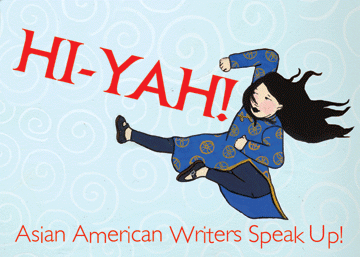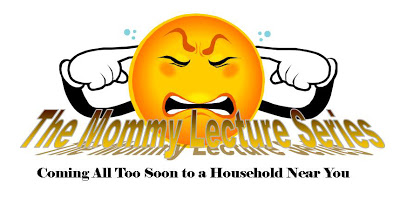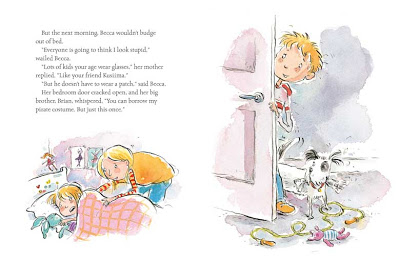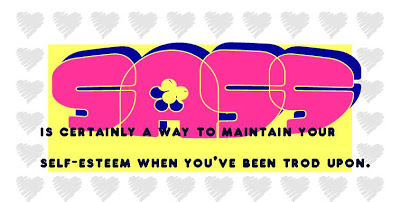 Justina Chen Headley’s been out and about throughout the ‘blogosphere’ this week. At HipWriterMama’s place, we learned she doesn’t always write the greatest pf titles, and once, she had to name a book in just three days. (She rocked it, though: Nothing But the Truth (and a few white lies) is a pretty cool title.) At Big A, little a, Justina let us in on the name of her brother’s vineyard (Patton Valley!) and introduced us to the idea of REAL green tea frappucinos. Sounds like they could be tasty.
Justina Chen Headley’s been out and about throughout the ‘blogosphere’ this week. At HipWriterMama’s place, we learned she doesn’t always write the greatest pf titles, and once, she had to name a book in just three days. (She rocked it, though: Nothing But the Truth (and a few white lies) is a pretty cool title.) At Big A, little a, Justina let us in on the name of her brother’s vineyard (Patton Valley!) and introduced us to the idea of REAL green tea frappucinos. Sounds like they could be tasty.
And here at Finding Wonderland, we’re really pleased to welcome our final Summer Blog Blast Tour interviewee, Justina Chen Headley, to our humble treehouse, and we beg you to forgive us for forgetting, and to remember yourselves: Patty Ho is Taiwanese. Taiwanese. Don’t forget, okay? We won’t either.
FW: With the Nothing But the Truth Scholarship Essay contest, and your donation to the American Optometrics Association’s InfantSEE program from the proceeds you earned from The Patch, you’ve really lived the idea that every writer should give back to the world, not just with words but with actions. Why is philanthropy so important to you, and what do you see as the writer’s role within the larger community?
My job as a writer is to write down the truth—in all its silly, improbable, joyous, crazy, and ugly truth. But personally, I want to be more than a truth-scribe. I want to be an ambassador for the truths I feel passionately about. That’s what my mom taught me.
Put it this way: if I’ve devoted a year (or more) to writing a book and exploring a specific theme, then I’m usually fired up when I’m finished. I *have* to do something about what I’ve learned—put actions behind my words. So why not help a worthy teen with a college scholarship—when my parents had to sacrifice to put me through college? Why not promote awareness for the need for childhood eye exams—when I myself had no idea that babies are supposed to be tested! And why not inspire teens to change their world with a Challenge Grant that I’m co-sponsoring with Burton Snowboards in honor of my forthcoming novel, Girl Overboard?
So why not help a worthy teen with a college scholarship—when my parents had to sacrifice to put me through college? Why not promote awareness for the need for childhood eye exams—when I myself had no idea that babies are supposed to be tested! And why not inspire teens to change their world with a Challenge Grant that I’m co-sponsoring with Burton Snowboards in honor of my forthcoming novel, Girl Overboard?
FW: Many people are uneasy with the idea of confronting racism in their fiction and in themselves. How have people responded to Patty Ho’s rage, which her friend Jasmine seems to encourage?
To be honest, when adults talk to me about my debut novel, Patty’s anger rarely—very rarely—comes up. Instead, they describe the book as “fun” and “funny.” I’m glad—because certainly I hoped my novel would be a pleasure to read while still exploring deeper questions, such as self-identity and self-esteem in the aftermath of racism. But I am truly baffled that so few adults even reference the spitting scene, which is neither fun nor funny.
That said, my teen readers will talk specifically about racism with me—whether they found the spitting scene shocking (they had no idea that stuff like this happens) or that it was therapeutic (because something like this had happened to them). I find that openness extremely heartening.
FW:Mark Scranton and Steve Kosanko are two racist characters who humiliate Patty and keep after her about her Asian heritage. Patty is angry with them, but most of her anger turns inward as humiliation. Do you feel that anger/humiliation have fueled creative responses to racism in your own life?
I hate confrontation, and to this day, I struggle with the right response when people cut in line, when I see a friend’s kid talk back to her, when someone says something hurtful. I am not quick on my feet; I need time to deliberate, which is why I love writing and rewriting. I get to mull the situation over. I get to play with different scenarios. I get to react across a spectrum of responses.
The problem is, life is real-time.
So I do have to say, the things that have happened to me—whether it was being spit upon or called racist epithets while I lived in Australia for a year—inspired this book. I’m rewriting history. I’m not sugar-coating it, but I am giving it a more fulfilling ending.
FW:The Mama Lecture Series is hysterical, and certainly bypasses all ethnicities and cultural boundaries to unite us all in groaning loathing at being preached at. In your own experience as a Mom, have you felt that lecture series creeping up on you as part of your parenting?
It is terrible to hear The Mommy Lecture Series spewing from my mouth.
Lecture 1: Your room is a pigsty.
Lecture 2: You have two feet; get it yourself.
Lecture 3: When you take something out, put it back. In the same place. Now.
So, yes, I am guilty of reciting my own set of lectures. I can only imagine what my children will write if they ever choose to become novelists.
FW: Attitude is a big deal in NBtT. At one point, Patty wonders if it’s only her attitude holding her back. “Is attitude truly the only thing separating embarrassment from triumph? That a little sass could turn you from a social zero to a social hero? (page 174)” Can you talk a little about that little bit of “sass” in terms of dealing with racial discrimination? Is sass a way to survive?
Let’s face it: in certain situations nowadays it’s better and safer to walk away. And in some cases, to run away. Running away sometimes takes more courage than confrontation.
That said, sass is certainly a way to maintain your self-esteem when you’ve been trod upon. I may live to regret it, but I do encourage my kids to practice sassiness. In the right circumstances. Sassy humor—getting someone to laugh in the midst of a heated argument—now, that’s a gift.
FW:Many people feel empowered by the reclamation of a word. ‘Hapa’ means “half,” and is a word of Hawaiian origin. How have people responded to your non-Hawaiian use of the word ‘hapa’? or, Have people suggested other words to suggest ‘half’ or a biracial origin?
Some wonderful women at Swirl, a mixed race organization, warned me that there would be people who would not take kindly to my use of the word “hapa.” So, yes, one Hawaiian has expressed—shall we say, displeasure over my use of that word. The nice thing is that 99.9% of readers have agreed that in the case of this novel, hapa was the right word to use.
 See, what Patty learns is that labels are just that: labels. They’re just manufactured syllables, no different from the words she creates. Or the ones that naming company creates for a huge paycheck.
See, what Patty learns is that labels are just that: labels. They’re just manufactured syllables, no different from the words she creates. Or the ones that naming company creates for a huge paycheck.
We all have the power to define ourselves, using whatever words—real, made-up, co-opted—that feel right and good to us.
FW: In choosing to write about a mixed-race protagonist in NBtT, you had various choices to make, such as giving her a strict first-generation Chinese mother rather than someone more culturally assimilated. What made you decide on the specifics of Patty Ho’s background? Are there real-life people or events that inspired her character?
(Egads! Taiwanese, not Chinese, ladies! You can bet that Patty’s Taiwanese mom is having an ultra-conniption now!)
Anyway, I wanted to emphasize the experience of feeling other —- not fitting in to one community or another. That’s why I decided to have a first-generation (Taiwanese) mother.
So the characters—every last one—has a tiny piece of me inside him/her. Even the awful characters.
FW: NBtT was, in part, about finding one’s place in the world, whether that involves blazing your own trail or finding kindred spirits to make the journey easier. Do you think this story will help mixed-race and/or Asian-American youth to find their own place? Do you plan to write other stories with similar themes?
Books help people find their own place, understand their experiences, identify their dreams. Growing up, I didn’t have books featuring girls who looked like me. That’s one of the reasons why Janet Wong (TWIST), Grace Lin (The Year of the Dog), and I went on our Hi-YAH! Tour last spring. We wanted to encourage more mixed-race and Asian-American youth to write about their experiences and to share their stories.
My next novel, GIRL OVERBOARD, coming out in January, 2008, also explores the notion of finding your place in this vast world—but from the viewpoint of a snowboard girl who seemingly has the Midas touch. After all, her dad is a billionaire. And still with all her open doors and all her golden opportunities, Syrah has this overwhelming sense that she doesn’t belong. That she’s not good enough. That she’s not worthy. And that impostor feeling is something, I think, we have all experienced.
FW: In light of your role as one of the readergirlz, what do you see as the advantages of virtual meeting places such as MySpace in promoting literature—and literacy—among teens?
People who care about teen literacy—whether authors or publishers or librarians—need to make literature as accessible as possible. And that means being where teens are. These social networking places are today’s community centers. That’s why the readergirlz co-founders—YA novelists Dia Calhoun, Janet Lee Carey, Lorie Ann Grover and I—decided we needed to have a strong presence on MySpace. 70% of girls are on MySpace! And in September, we’ll be rolling out our profile on Facebook since so many college students have been clamoring for readergirlz.
That’s why to support YALSA’s Teen Read Week in October, readergirlz will be rolling out a new program on MySpace called “31 Flavorite Authors.” Every day throughout October, a different, acclaimed YA author will be available to chat with readers for an hour on our readergirlz group forum—groups.myspace.com/readergirlz.
I love being able to connect readers to authors. I love being able to talk to my own readership about my books and learn how my words have impacted them. These virtual meeting places made it easy and immediate…and best of all, they create community.
Unless you’ve been hiding under a big rock, you know that one of Justina’s ongoing books-to-readers babies is found at readergirlz, which kicked off this past year. Questions about who they are and what they do can be answered here, and here. For more on Justina’s philosophy of philanthropy, click here.
And we at FW feel a little bit like we’ve been a part of bridging the gap between readers and books, and it’s been a lot of fun. We owe so much to our participants, Gene Yang, Ysabeau Wilce, Kazu Kibuishi, Svetlana Chmakova, Chris Crutcher, Julie Anne Peters, and of course, Justina Chen Headley for giving us the opportunity to take a closer look at their writing, their philosophy and their lives. It has been a privilege, and we look forward to doing it again!

What a way to finish out the week! Cheers and kudos for Wonderland and Justina! 🙂
Taiwanese. Got it.
Excellent interview. I hadn’t noticed until today that you guys kicked off AND ended the SBBT tour with solo interviews. How cool for you! And how excellent all your interviews were. Well done, ladies.
Hi – I really enjoyed this interview, but couldn’t really read the sections that were juxtaposed with the graphics, the graphics cut off the words. Don’t know if it’s your site, or my computer?
To Anon:
If Internet Explorer is your browser, there’s a reason you may not be able to see this correctly. IE gives you the option to change your accessibility to more font styles or to format documents using your own style sheet, at least Version 6 does. It seems you’re using V7 – so I’m not sure why it doesn’t work. Maybe try viewing it in another browser? Sorry that’s the limit of my tech support. If there’s a piece of the interview you didn’t get, drop us a line (email wndrland_at_sonic.net) and we’ll send it to you.
If Anonymous is running their browser through a proxy server, to filter content, that could be the issue as well. Some pop-up blockers (AdSubtract) will do this, depending upon how they’re configured. They don’t necessarily know how to parse style sheets, and end up mangling the content.
Fab, fab interview!